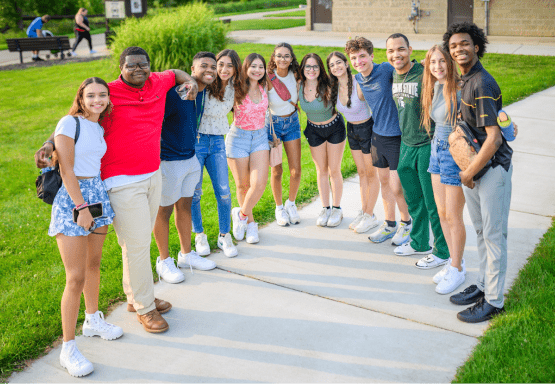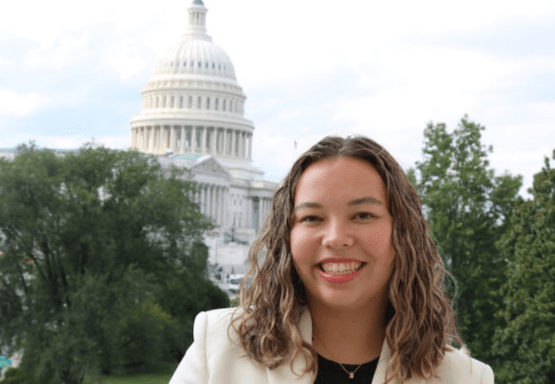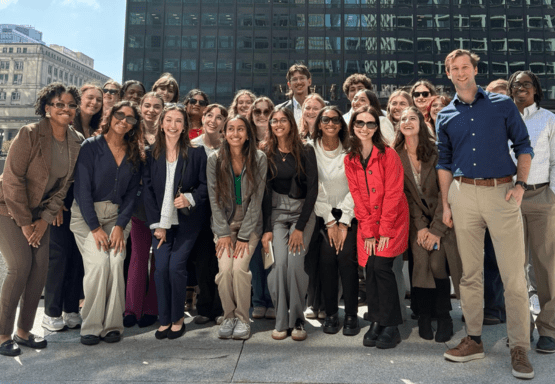Three James Madison College students will present their research at MSU’s annual Diversity Research Showcase on Jan. 24. The event, which celebrates undergraduate scholarship advancing inclusion and equity, will be held both in-person at the MSU Union and online from 1:30 to 4:30 p.m.
The showcase, hosted by the Honors College and open to all students, will include more than 60 undergraduate researchers from 12 of MSU’s degree-granting colleges. Presenters will share findings on a broad spectrum of topics, including cultural, racial, ethnic, functional, gender, international, LGBTQIA2S+ and political diversity.
The JMC students selected to present their research will join peers, faculty and staff in what organizers describe as a supportive and constructive atmosphere designed to foster meaningful dialogue about diversity and inclusion.
Read more about their individual research projects below:
Delaney Grant
Second-year JMC student
Major: Social Relations & Policy
Faculty Mentor: Prof. Anna Pegler-Gordon
Project Title: The Forgotten Genocide: The Erased World War II Experiences of Romani Peoples
Project Description: “Romani peoples have faced mistreatment throughout history, and this was no different in World War II. However, compared to other victims of the Holocaust, there is a particular lack of documentation and evidence of the atrocities Roma in particular faced. There has also been a lack of research into their experiences. Lack of reporting of mass killings involving Roma, government and police interference during and postwar, and prejudices held by the general population in many European countries have caused a gap Roma, World War II, and Genocide and Holocaust Studies which should be acknowledged. Furthermore, Romani victims and survivors deserve their voices to be heard and stories to be told after being denied their right to do so for decades. Therefore, the purpose of this research was to find the experiences of Roma, the perpetrators of the violence they were subjected to, and the reasons for this violence through Romani voices and stories.”
 Ryan Longo
Ryan Longo
Fourth-year JMC, Social Science & Honors College student
Majors: Social Relations & Policy and Economics
Faculty Mentor: Prof. Florencia Rojo
Project Title: Redlined Lunch Rooms
Project Description: “My project investigates the relationship between 1930s redlining practices and present-day school food environments in Michigan public schools. I examine whether public schools serving historically redlined and economically disadvantaged neighborhoods have disparities in their food environments compared to non-disadvantaged schools in non-redlined areas. My study analyzes 42 elementary schools across 11 Michigan cities with historical Home Owners Loan Corporation (HOLC) maps and Michigan Department of Education school data. I found some evidence that historical redlining continues to impact school food environments through persistent economic disparities affecting school resources, racial segregation patterns in school populations, and differential access to fresh food programs and initiatives. These findings indicate that while government nutrition programs help address basic food security, broader inequities in school food environments persist along historical patterns of racial and economic segregation in part through redlining. My research is exploratory and constrained by data and methodological limitations, yet my findings do underscore the urgent need for further investigation into the ongoing impacts of redlining on Michigan’s youth and their educational environments.”
 Lyra Opalikhin
Lyra Opalikhin
Third-year JMC & Honors College student
Majors: International Relations and Comparative Cultures & Politics
Faculty Mentor: Prof. Jennifer Goett
Project Title: The Regulation and Control of Transgender Identity in the EU Asylum-Seeking Process
Project Description: “My project details the European Union (EU) asylum-seeking process for transgender and genderqueer refugees and the unique barriers and struggles they face. It argues that the EU asylum-seeking process controls transgender and gender-nonconforming individuals through a normative and essentialist understanding of transgender identity. This control of identity and the expression of identity leads to continued physical, psychological, and legal violence towards transgender individuals throughout all stages of the asylum-seeking process.”



.png?h=384&iar=0&w=555)


